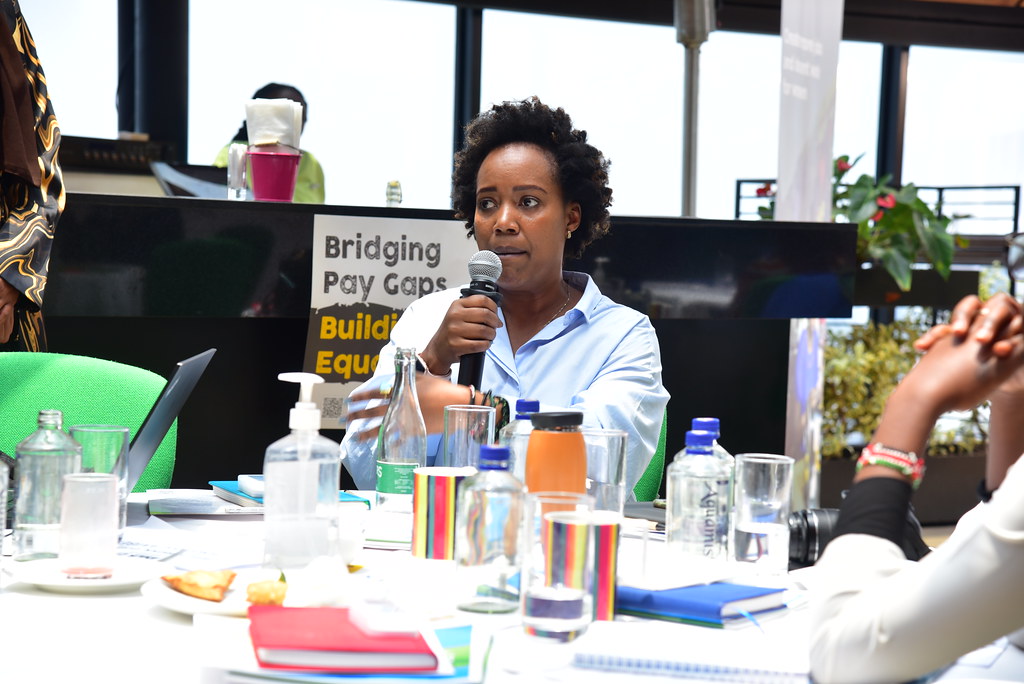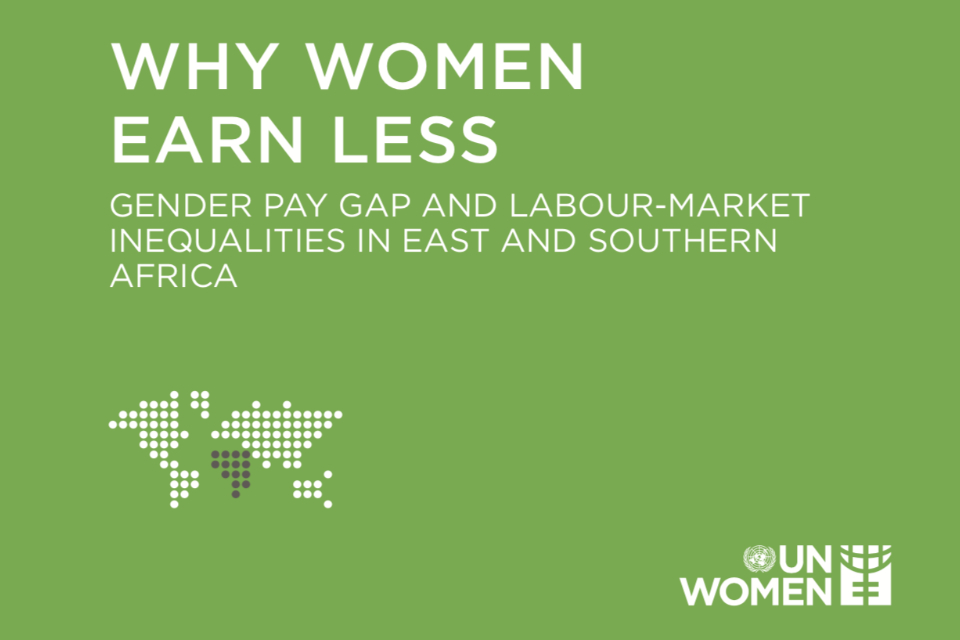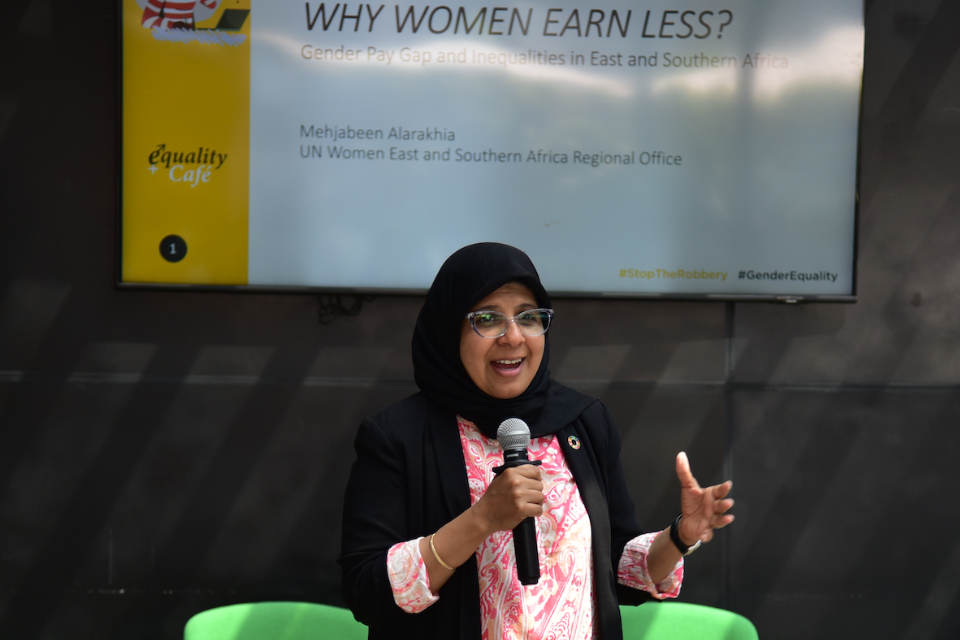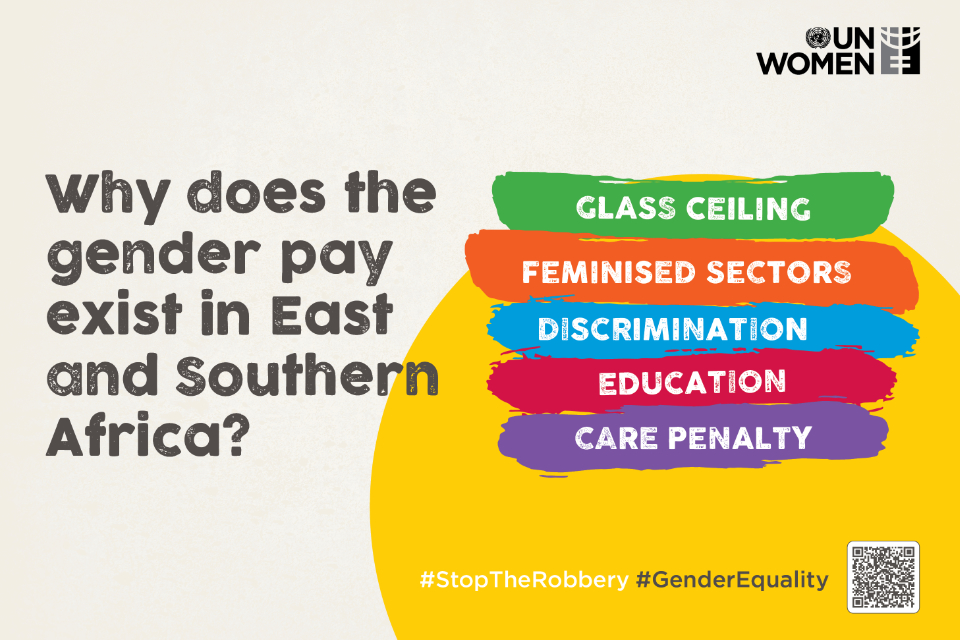The Gender Pay Gap Report
Gender pay gap is a glaring symbol of the ongoing struggle for gender equality. It persists across industries, borders, and generations and no country in the world has been able to successfully close it. The UN Women (2023) report ‘Why Women Earn Less?’ finds that women earn 21% less than men in the East and Southern Africa region, with substantial variations across countries. In fact, the gap exists even after accounting for the average differences in women and men’s education, seniority and work experience, and type of job. This leads to lifetime income inequality between women and men, and further contributes to women’s poverty.
A myriad of reasons explains why women earn less than men. Women have historically been clustered into lower-paying fields, such as caregiving, education, and service industries, while men have dominated higher-paying sectors like technology and finance. Women also have less opportunities for access to leadership positions and opportunities for career advancement. Discrimination, both overt and subtle, plays a critical role in the gender pay gap in the region. Deeply ingrained cultural norms and gender stereotypes underpin the pay gap. These norms can shape educational choices, career aspirations, and workplace behaviour, often reinforcing gender-based wage disparities.
Closing the gap empowers women, stimulates economic growth, and drives social progress. Importantly, achieving pay equity is not just a matter of economic fairness but a reflection of our commitment to a just and equal society. The findings of this report aim to guide a wide variety of stakeholders in understanding and addressing the pay gap.
Why Women Earn Less: Gender Pay Gap and Labour Market Inequalities in East and Southern Africa
This report is to better inform researchers, policymakers, development practitioners and trade unions to understand labour market inequalities in the region and use it to advocate for gender equality.
View/download the report here
Experts take: Why do women earn less?
We cannot talk about gender equality without addressing the stubborn gender pay gap that persists across the globe. In East and Southern Africa women are paid 19% less than men on average, to make up this difference women would need to work 5 hours extra every week. We need to reveal the gap to close the gap, and this is exactly what UN Women’s new report on ‘Why Women Earn Less’ intends to achieve.
Read more
The gender pay gap leads to a lifetime income inequality between women and men. It is also contributes to higher rates of poverty amongst women.
View the social media cards here.

On September 12th 2023, UN Women ESARO hosted an Equality Café to discuss key findings from the report and present a panel discussion on ways to address the pay gap. The event was attended by journalists and influencers to train, inform and foster partnerships with the media.



